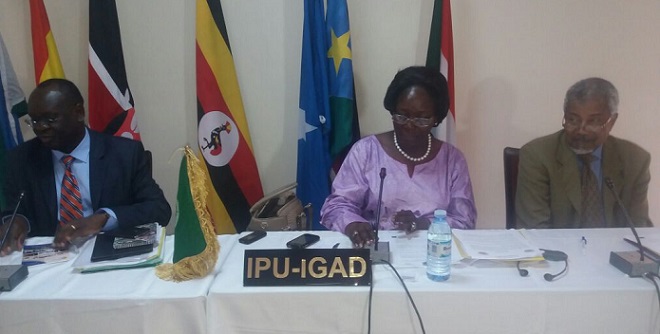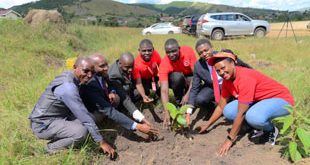
Kampala, Uganda | THE INDEPENDENT | Female Speakers of parliaments in the Inter Parliamentary Union (IPU) have called for increased economic empowerment of women and financial inclusion.
The speakers and presiding officers made the call during a virtual meeting of the 13th Summit of Women Speakers of Parliament organized by the Parliament of the Republic of Austria early this week.
The Speaker of Parliament of Uganda, Rebecca Kadaga, moderated the meeting that was dedicated to “stepping up women’s economic empowerment and financial inclusion”.
Kadaga said that gender equality is a key driver of fair, sustainable and just development and is a key driver of resilience to crises like the Covid-19 pandemic that is on a global scale.
“Women workers are more likely than men to have the lowest paid and least protected jobs, often in the informal sector where they are excluded from tax-financed health coverage and from social benefit protections, such as pensions, social insurance, paid sick leave, or parental and care leave,” she said.
Kadaga said the solution is to root for the elimination of discriminations against women in law and in practice, confining women to unskilled, underpaid or unpaid work preventing them from attaining equal pay, running a business, managing property or accessing financial services.
The Speaker of Parliament of Moldova, Zinaida Greceani, expressed her gratitude for the platform citing it as an opportunity to find joint solutions to strengthen the positions of women in various economic activities.
She said that typically, women in most countries earn far less than men, inherently placing them at a disadvantage against men. Greceani added that Moldova has adopted strategies of elevating women financially.
“We have strategies of equality between men and women, combating domestic violence and human trafficking. These should suffice in leveling women up to men,” she said.
She said that in Moldova, the country is targeting a 40 percent women representation in Parliament as a form of affirmative action. This, she hopes would allow women to participate in deliberations that will address gender inequalities in their societies.
The President of the Senate of Zimbabwe, Mabel Chinomona, said that Covid-19 has a more devastating effect on women, many of whom are losing jobs, and called for quick measures must be taken to avert the situation.
“We still have a problem of financial inclusion of women and financial empowerment. Women’s economic empowerment requires changing structural political norms and social order by including women in all areas of decision making like political and administrative institutions,” she said.
Chinomona suggested that governments ought to support women to study Science, Technology and Mathematics, the subjects currently influencing change in the world order. She added that this would empower women to compete favorably in the advancing global technological arena.
Tanzila Narbaeva, the Chairwoman of the Senate of Uzbekistan, added that protecting the rights and ensuring gender equality are a priority in her country and this includes creating equal economic opportunities.
“Recently, we passed 16 Acts of Parliament that are linked to promoting gender equality to encourage female entrepreneurs and we have a center in our country that has been created to train women for that purpose,” she said.
She further added that this goes a long way in empowering women financially and economically which in turn uplifts their status in society.
The President of IPU, Gabriela Cuevas, encouraged the Speakers to utilize the platform to exchange best practices of women empowerment and to also learn from each other.
She urged member states of the IPU to focus on economic empowerment of women especially in the areas of property rights, equal salaries and access to social security.
“We need to build an environment that supports women to achieve their dreams in their respective careers and to be respected in their own right at their work places,” Cuevas said.
*****
SOURCE: Uganda Parliament
 The Independent Uganda: You get the Truth we Pay the Price
The Independent Uganda: You get the Truth we Pay the Price


